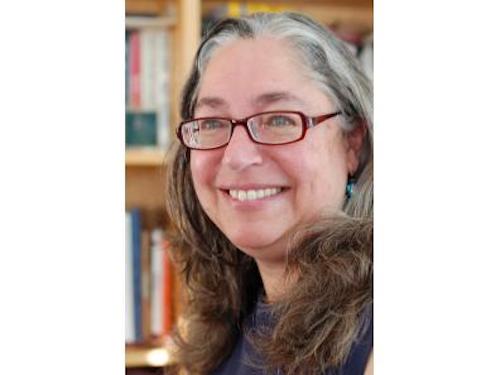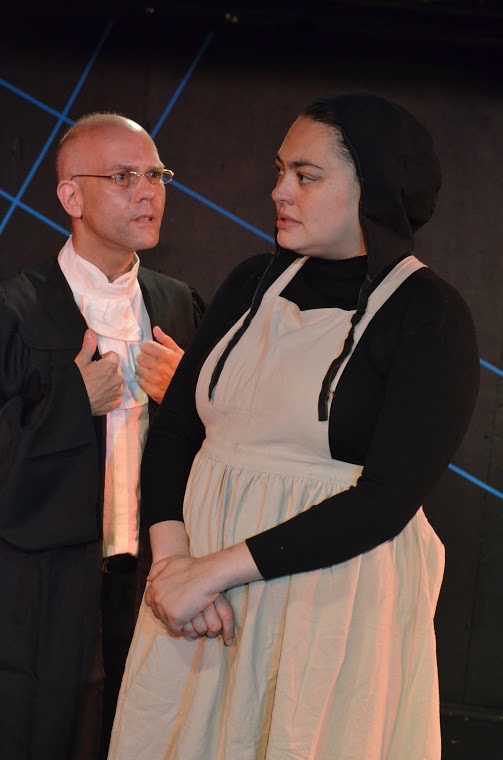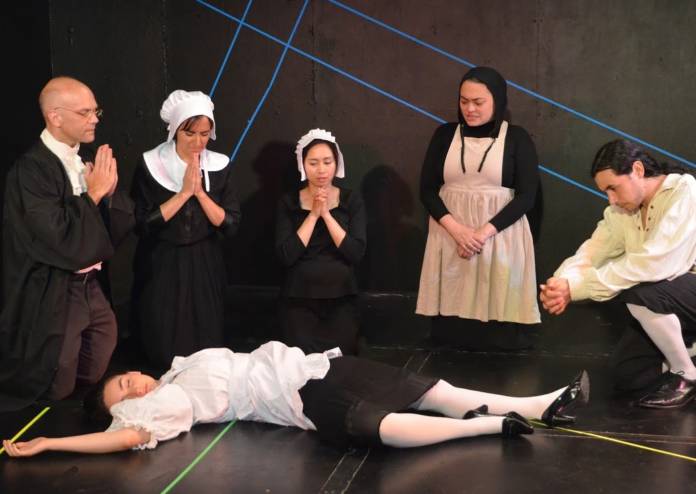ONSTAGE In 2014, playwright Carol Lashof and director Elizabeth Vega wanted to put on a play, Just Deserts, that Lashof had written.
“We connected because of unusual commonality of interests – a love of classical literature and drama, and we’re both inveterate feminists who love great stories,” Lashof said. “We were frustrated trying to get our stories made, so rather than rant and rave we started making our own theater.”
The play was about the trial by jury system from the point of view of the Furies and was based on Aeschylus’s Oresteia. They produced it for the St Mary’s College Great Books Program and ended up starting their own company, Those Women Productions.
The company is dedicated to exploring issues of gender and power, and previous productions include Unquestioned Integrity: the Hill-Thomas Hearings, Shifting Spaces, and The Lady Scribblers. Their most recent play, Witch Hunt (Fri/12-August 4 at La Val’s), opens this month.
Several years ago, Lashof started reading about the Salem witch trials, which took place in colonial Massachusetts in 1692 to 1693. Nineteen people were executed and more than 150 imprisoned. Tituba was a key figure in the panic, enslaved in the house of minister Samuel Parris, and one of the first to be accused of witchcraft.

“The main thing I thought I knew came from Arthur Miller’s The Crucible. One of his characters is a real historical character, Abigail Williams, and he portrays her as a 17-year-old tramp. In fact, she was an 11-year-old girl,” Lashof said. “I came across a book about Tituba [Tituba, Reluctant Witch of Salem: Devilish Indians and Puritan Fantasies by Elaine Breslaw], who was widely portrayed as African and a practitioner of witchcraft, but scholars research strongly suggest she was a South American Indian woman kidnapped as a girl by English traders and enslaved in Barbados.”
Lashof says that her reading of history totally contradicted the view she and most people she knew had about the witch trials.
“Myself and my friends were seeing it as a result of the repressed sexuality of teenage girls frustrated and fooling around in the woods,” Lashof said, referring to Miller’s play that has the girls and Tituba dancing naked in the woods. “I did think there were records of people practicing voodoo and girls running around naked in the woods. But it was one of most bitter winters in history, and the arrests started in February. Believe me, nobody was taking off their clothes and running around.”
Help us save local journalism!
Every tax-deductible donation helps us grow to cover the issues that mean the most to our community. Become a 48 Hills Hero and support the only daily progressive news source in the Bay Area.
Another book Lashof read on the topic was In the Devil’s Snare: The Salem Witchcraft Crisis of 1692 by Mary Beth Norton.

“In Northern New England there were ongoing Indian wars, and she was absolutely convinced that the witch trials had a lot more to do with fear of Indians than a fear of sex,” Lashof said. “The more I read the deeper I got into this complex web of causes and it was hard to figure out how to write a play about it.”
Vega and Norman Johnson, an associate artist with the company and the dramaturg on Witch Hunt, encouraged Lashof to try. When she started, she was pulling from primary sources like the transcripts of the trial and the Parris’ notebooks, but eventually she dropped that idea and began to make up scenes. Johnson and Vega thought she should introduce the character of Tituba, who historical records say was a great storyteller, early on in the play.
There are a couple reasons Witch Hunt has resonance now, Lashof thinks.
“One obvious superficial thing is we keep talking about witch hunts, and every time I pick up the paper, the president is complaining about witch hunts, and we’re arguing about whose truths get to be heard,” Lashof said. “Then in a deeper way the United States government and some people living here are demonizing folks they think don’t belong. Tituba, even though she’d been Christianized and assimilated, would never be accepted into Christian culture and there are clear parallels to what’s happening now with immigrants.”
WITCH HUNT
July 12-August 4
La Val’s Subterranean Theater, Berkeley
Tickets and more information here




